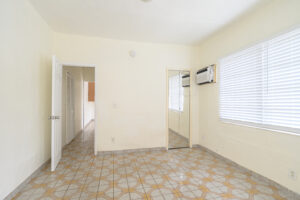Foreclosures are a critical issue for homeowners, buyers, property managers, and mortgage providers in real estate. When a homeowner fails to pay their mortgage, the bank seizes the property. This process affects not only the individual but also has wider consequences for the market and community.
Effects of Foreclosures for Home Prices
A decrease in home values is one of the most direct impacts foreclosures have on the housing market. When a neighborhood’s multiple homes go into foreclosure, the prices around that neighborhood drop. This occurs for two main reasons:
Increased Supply: Foreclosed properties are being dumped by banks quickly at prices … lower than market value. With cheap homes flooding in, you can find other houses nearby that come cheap as a result because now there are more affordable options.
Perception of Decline: The number of foreclosures can suggest an economic distress is a neighborhood. No matter how nice the amenities or features of the area, buyers are scared off by the foreclosure stigma that goes with them, further depressing prices.
 Ripples in the Community
Ripples in the Community
If whole communities are destabilized, then foreclosures become a major problem. People often leave properties vacant for long periods when they leave their homes. This can lead to:
Neglected Properties: And foreclosed homes might not be repaired, causing dilapidation, or in general ruin, which lowers the neighborhood’s visual appeal and public safety.
Lower Tax Revenue: Paying property taxes is often what keeps local governments afloat, allowing them to remain in operation. If those paying the taxes cease to exist, the government may have difficulty balancing the books and paying for things like schools, public safety and road maintenance.
Market Imbalances
Housing market imbalances are also caused by foreclosures. The surplus of available homes when the foreclosure rates rise can sometimes bring on what is called a buyer’s market. If buyers have lower prices demanded during these periods, then home values will go even lower.
On the downside, an undersupply of housing may shrink as foreclosed homes go on the market. In a growing population area, even a tighter inventory can turn prices back up, forming a cycle of volatility.
 Investor Opportunities and Risks
Investor Opportunities and Risks
Real estate investors who want to ‘flip’ properties also go after foreclosures. Indeed, investors can rehabilitate distressed properties and revitalize neighborhoods, though there’s a possibility that they will focus more on quick profits than ensure long term community stability.
The Bigger Picture
Foreclosures do devalue housing prices, but they’re symptomatic of something else. Foreclosures usually increase when things slow down like unemployment, stagnant salary growth, rural areas or a sudden surge of risky lending. Hence, retaining foreclosure rates low is crucial to hold a balanced housing market stable and sound.
For homeowners, buyers, and real estate pros, it’s of paramount importance to understand the chameleon nature of foreclosures. If we acknowledge the signs and effects, they can act proactively to protect their investments and their communities. Digging deeper into the inner workings of foreclosures and how they impact the housing market will help us come up with some solutions that are more forward thinking, to create more resilient housing landscapes for everyone. Visit Gold Homes LLC for more blogs, expert insights, and guidance.

